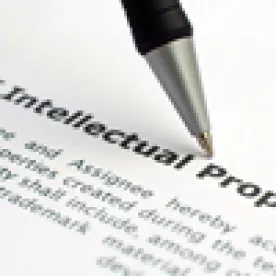Takeaway: Parties may seek to depose a declarant regardless whether the declaration is filed or served.
In its Order following a conference call, the Board addressed Patent Owner’s request for guidance “regarding (1) new evidence submitted with Petitioner’s Reply in IPR2014-00221 and IPR2014-00227; and (2) whether it will be entitled to a deposition of a declarant if a declaration is filed in response to a Motion to Exclude, and if so whether the timing of the deposition can be arranged to not interfere with the Christmas Holiday.” The Board reserved judgment regarding the alleged new evidence until it has prepared its final written decision and declined to order Petitioner to make its declarant available for deposition.
Patent Owner argued that certain evidence relied upon by Petitioner in its Reply constituted supplemental evidence that should be expunged, or in the alternative, that Petitioner should be ordered to file a revised Reply without referring to the evidence. The Board indicated it would decide the issue in its final written decision. However, to preserve the parties’ arguments, the Board allowed the parties to file brief statements. Particularly, Patent Owner could identify in its statement the alleged new evidence in Petitioner’s Reply, and Petitioner could identify in its statement the portions of the Patent Owner Response to which the alleged new evidence was properly responding.
Turning to the requested deposition, Patent Owner had objected to Petitioner’s evidence, asserting that a prior art reference did not constitute prior art. In response to Patent Owner’s objections, Petitioner served Patent Owner with two declarations directed to the authenticity of the prior art reference. During the conference call, Patent Owner was seeking to file a Motion to Exclude the prior art reference and anticipated that Petitioner would rely upon the declarations as exhibits to oppose any Motion to Exclude. Therefore, Patent Owner requested an order from the Board that it is entitled to depose the declarant either before filing a Motion to Exclude or before the filing of its Reply in support of the motion.
Petitioner argued that the reference was self-authenticating and that the declaration was merely a certification compliant with FRE 902(11). Petitioner also noted that Patent Owner provided no authority that it was entitled to a deposition of a declarant with respect to FRE 902(11), and that the Board did not have subpoena power to compel third parties to attend a deposition.
The Board denied Patent Owner’s request without addressing Petitioner’s arguments. In this regard, the Board noted that Patent Owner had been in possession of the declaration “for some time.” Patent Owner argued that even though the declaration had been served, it was not filed, and therefore, Patent Owner believed it was not entitled to depose the declarant. The Board stated that the fact the declaration was not filed in PRPS did not preclude Patent Owner from pursuing to depose the declarant.
Valeo, Inc., Valeo S.A., Valeo GmbH, Valeo Schalter Und Sensoren GmbH, and Connaught Electronics Ltd. v. Magna Electronics, Inc., IPR2014-00221; IPR2014-00227
Paper 27: Order on Conduct of the Proceedings
Dated: November 13, 2014
Patents: 7,991,522; 7,877,175
Before: Jameson Lee, Phillip J. Kauffman, and Matthew R. Clements
Written by: Clements



 />i
/>i
